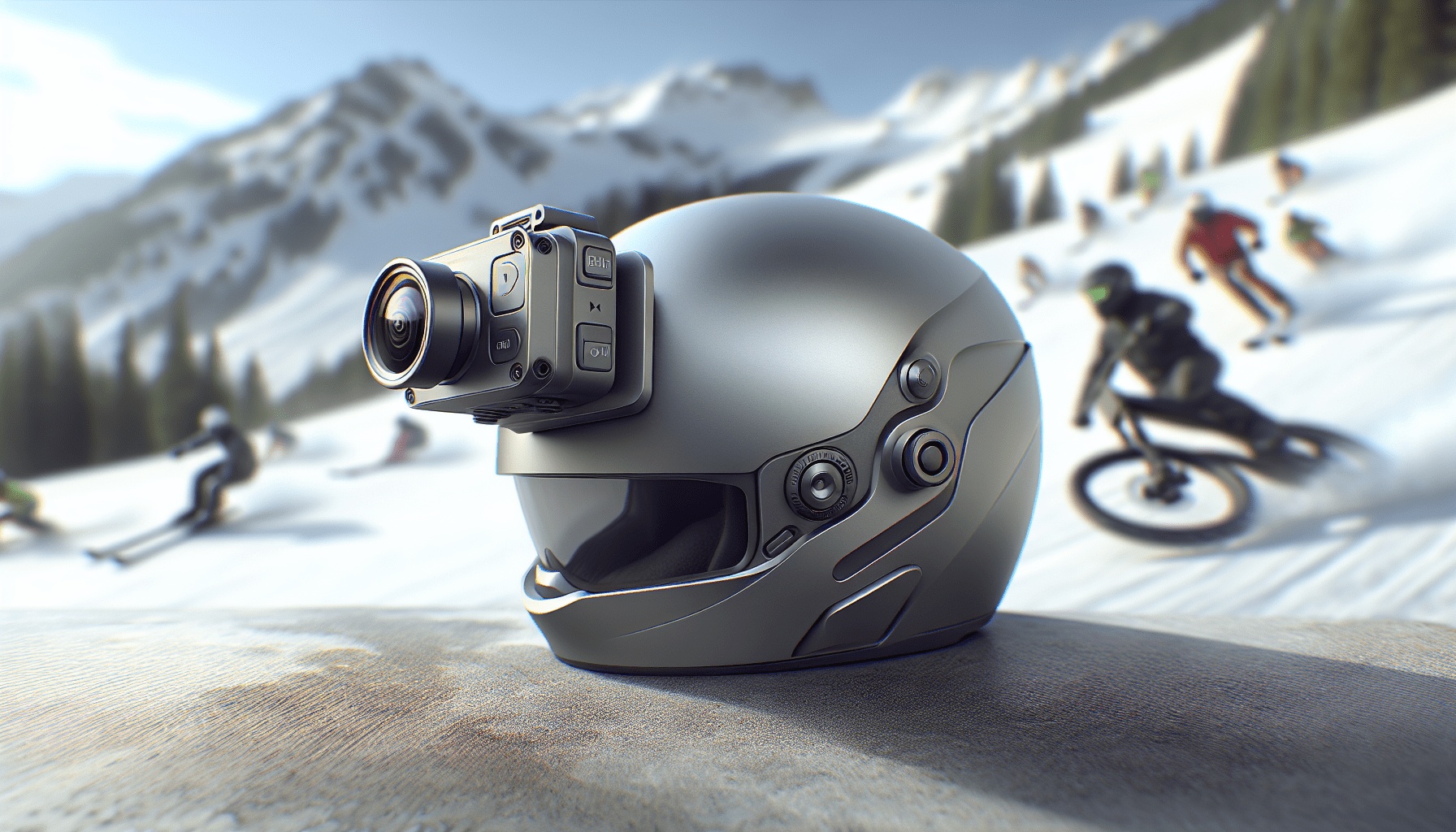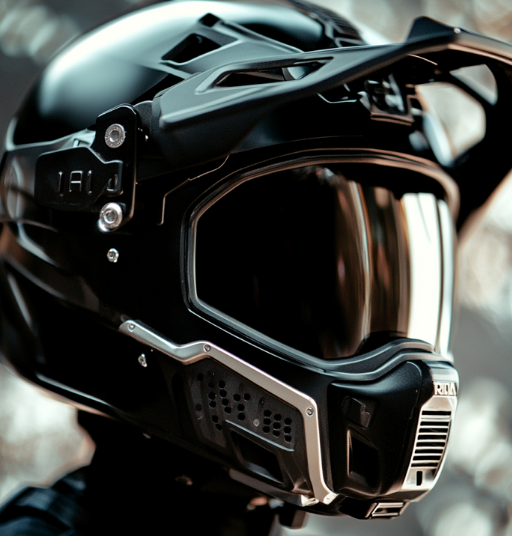Have you ever wondered how helmet cameras are changing the way we capture and share experiences? In recent years, helmet cameras have become increasingly popular for various reasons, from enhancing safety to documenting thrilling adventures. Let’s take a closer look at some fascinating use cases for these versatile devices. You’ll soon see that they serve multiple purposes across different fields and activities.
What is a Helmet Camera?
Helmet cameras, often referred to as action cameras, are compact devices mounted onto helmets. They record video and take pictures right from the wearer’s perspective. Their ability to capture immersive footage makes them a favorite for many. These cameras can be attached to various types of helmets, used by sports enthusiasts, professionals, and even everyday adventurers.
Why Use a Helmet Camera?
The appeal of helmet cameras goes beyond just recording fun moments. They provide a unique viewpoint—your perspective! What’s more, they can enhance safety, serve as valuable training tools, and help document experiences for sharing or analysis. You might be surprised how much they can do!
Use Cases for Helmet Cameras
The versatility of helmet cameras makes them applicable in a variety of scenarios. Let’s break down how these handy devices are being utilized in different fields.
1. Sports and Adventure Activities
Whether you’re skiing down a mountain slope or biking on rugged trails, helmet cameras provide an exhilarating way to capture your adrenaline-filled moments. Here are some popular activities where these cameras shine:
Skiing and Snowboarding
When you hit the slopes, having a helmet camera allows you to capture every twist, turn, and jump. It’s like having a personal videographer with you! You can share your snowy adventures with friends or analyze your techniques later on.
Cycling and Mountain Biking
Cycling is another area where helmet cameras excel. You can capture breathtaking views, document your rides, and showcase thrilling trails. Plus, if you’re involved in a bike race, the footage can serve as a valuable training tool.
Skateboarding and BMX
Skateboarding and BMX enthusiasts find helmet cameras ideal for sharing their tricks and stunts. You can inspire others, learn from your own footage, or simply relive those heart-pumping moments.
2. Safety and Security
Helmet cameras are increasingly recognized for their safety and security applications. By recording your surroundings, you can protect yourself and others in various situations.
Road Safety for Cyclists
When cycling on busy roads, having a helmet camera can be a game-changer. In case of an accident, capturing the events leading to the incident can provide crucial evidence. This documentation may protect you in legal matters and help promote safer road conditions.
Law Enforcement and Emergency Services
Many law enforcement agencies and emergency services have adopted helmet cameras for officers on duty. These cameras capture real-time footage of interactions, which can be vital for accountability and training. It also ensures transparency during investigations and interactions with the public.
3. Education and Training
One of the most valuable uses of helmet cameras lies in education and training across various sectors.
Sports Coaching
Coaches can use helmet cameras to record training sessions, reviewing the footage to identify areas for improvement. This allows athletes to learn and adapt actively, making training more effective.
Military and First Responders
For military and first responders, helmet cameras can be essential for situational awareness. Capturing training simulations and real-world operations helps refine tactics and techniques. After-action reviews using footage can lead to better preparedness in the field.
4. Documentation of Daily Life
Life can be an adventurous journey, and helmet cameras allow you to document it without the distraction of holding a camera.
Family Outings
You can capture memories from family outings, whether at a theme park or hiking. When you’re busy having fun, it can be awkward to keep pulling out a camera. A helmet camera ensures you won’t miss valuable moments, allowing you to be present while capturing all the excitement.
Travel Adventures
If you’re an avid traveler, recording your experiences gives you a unique way to look back at your adventures. From hiking picturesque trails to exploring vibrant cities, your helmet camera can capture it all in stunning detail.
5. Recreational Activities
Many hobbies and recreational activities benefit from the use of helmet cameras.
Motorsports
In motorsports, helmet cameras are indispensable. They provide footage for analysis after races, and help capture thrilling moments for fans. Furthermore, having documentation of laps and maneuvers can be a critical learning tool for drivers.
Horseback Riding
Horseback riders can benefit from helmet cameras too. Whether you’re in a competition or enjoying a quiet ride, capturing your journey can enhance your skills. It’s a different perspective that can be enlightening.

Considerations for Choosing a Helmet Camera
When it comes to selecting the right helmet camera, you’ll want to take a few factors into consideration. Below are some elements to ponder.
1. Resolution and Frame Rate
Higher resolution typically leads to better video quality. A camera with 4K resolution captures stunning detail, while a good frame rate, around 60 frames per second (fps), ensures smooth motion. When you’re capturing fast-paced action, you’ll appreciate this.
2. Durability and Weather Resistance
If you plan on using your helmet camera in challenging environments, opt for a model that is durable and weather-resistant. Look for features like water-proofing or shock resistance, especially if you’re prone to encountering rough conditions.
3. Battery Life
Pay attention to battery life, especially for long activities or events. A camera that can last several hours without needing a recharge is ideal for those who love capturing long adventures.
4. Mounting Options
Consider how versatile the mounting options are. You may want to use not just a helmet mount but also various attachments to capture different angles and perspectives.
5. Ease of Use
Choose a helmet camera that is easy to operate and set up. When you’re in the moment, the last thing you want is to fumble with complicated settings. Simple controls help you focus on what matters: the adventure itself.
Tips for Using Your Helmet Camera
Once you’ve selected the perfect helmet camera, it’s time to make the most of it. Here are some friendly tips for optimizing your experience.
1. Check Your Settings Before You Start
Before embarking on your adventure, take a moment to adjust your camera settings. Ensure the resolution, frame rate, and audio settings suit your needs. This way, you’ll be ready to capture everything right away!
2. Experiment with Angles
Don’t hesitate to experiment with different camera angles and perspectives. Mounting the camera at various positions can yield surprisingly creative results. You might even inspire others with your unique viewpoint.
3. Keep It Clean
Regular cleaning helps ensure your footage remains clear and high-quality. Dirt and smudges can obstruct your view, so take a few moments to wipe your camera lens before starting.
4. Plan Your Shots
While spontaneous adventures can yield fantastic stories, planning certain shots can enhance your footage quality. Think about what moments you want to capture and position your camera accordingly.
5. Edit Your Videos
Once your adventure is complete, take the time to edit your videos. You can add music, captions, or effects to enhance the storytelling. There are various user-friendly editing tools available to help you with this.
The Future of Helmet Cameras
As technology continues to advance, the future of helmet cameras looks promising. Emerging innovations may lead to improved image quality, even better battery longevity, and smart features like real-time sharing to social media platforms.
1. Integration with Smart Devices
Helmet cameras may increasingly integrate with smartphones and smartwatches, making them easier to control and monitor. Imagine receiving notifications on your smartwatch while you’re recording—how handy would that be!
2. Enhanced Connectivity
With advancements in wireless technology, you could share your recorded experiences in real time, live streaming your adventures with friends and followers. This connection could introduce a whole new level of interaction.
3. AI and Automated Editing
Imagine if helmet cameras could analyze your footage and automatically create highlights for you! Future developments might include AI-driven software, simplifying the editing process and allowing you to focus more on your adventure rather than the post-production work.
Conclusion
Helmet cameras open up a world of possibilities for capturing life’s adventures from your unique perspective. From sports and safety to education and personal documentation, these innovative devices are more than just cameras; they’re powerful tools for learning, sharing, and experiencing life to the fullest.
Whether you’re shredding powder down a hill, biking on mountain trails, or just capturing family memories, helmet cameras are sure to make every moment more memorable. So, why not consider getting one? You might find that it transforms how you view and share your world!

